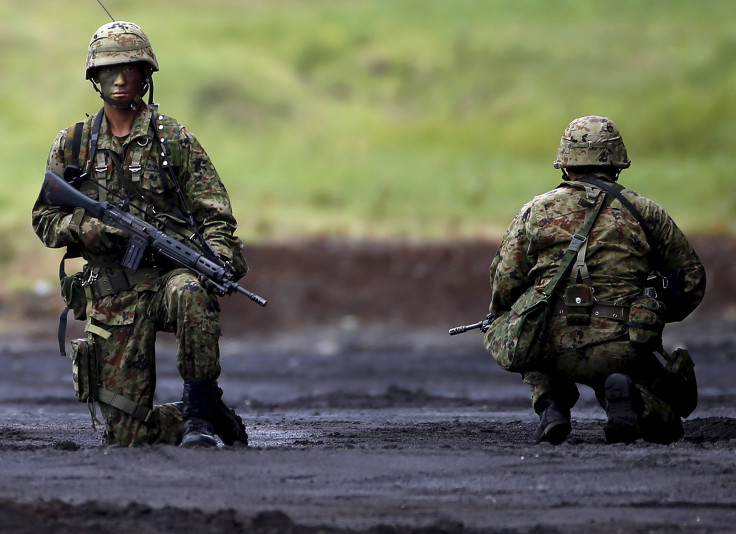US-Japan Defense Relations: Tokyo To Cut Spending On American Bases Inside Country

Japan's government is planning to reduce its share of spending on U.S. military facilities and personnel based on its soil. The announcement follows the parliament's recent vote to let its troops fight in overseas conflicts for the first time since World War II. By cutting internal defense spending, Japan hopes to divert the funds to expand its forces and protection of remote islands that lie to its southwest, according to a Japan Times report Sunday.
As part of its current security arrangement with the U.S., Japan is paying Japanese nationals who work for the U.S. military, as well as utility costs and other expenses. While it’s not yet clear how much Japan wants to cut from that burden, it will ask the U.S. to vastly increase the portion it spends in Japan from 2016 onward. Tokyo has set aside around 190 billion yen ($1.58 billion) for 2015.
The terms of Japanese spending on U.S. bases are reviewed every five years. The next agreement will expire in March 2016. During negotiations with the U.S. in 2011, the Japanese did not change the agreed amount as they were trying to improve relations that had become strained under previous administrations in Tokyo, according to the Japan Times report.
Tokyo hopes to reach a new agreement on base spending with the U.S. by December as it begins drafting a new defense budget going into 2016. But it's not yet known whether the U.S. will accept Japan's proposal as the Pentagon faces cuts of its own as part of forced sequestration.
The White House and Congress are currently in disagreement over the 2016 defense budget, squabbling over what federal funds can and cannot be used to make up the proposed budget of $613 billion. If no agreement can be reached before the start of next year, a number of defense acquisitions, pay reforms and new projects will suffer funding issues. A delay on the budget will also make it more difficult to find new funds to make up the difference of what Japan cuts from its spending.
In June, the lower house of the parliament approved a bill that would let troops fight overseas for the first time since Japan surrendered to the Allies on Sept. 2, 1945, according to a BBC report.
© Copyright IBTimes 2024. All rights reserved.






















